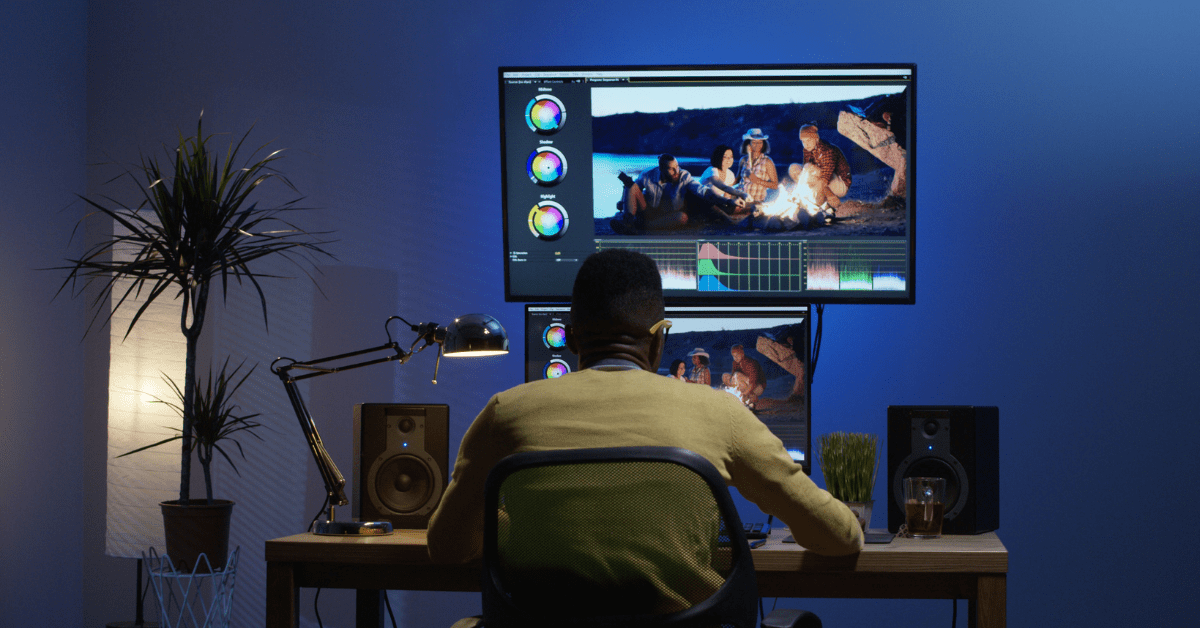The Evolution and Impact of Video Editing in Nepal: A Comprehensive Overview

Introduction
In recent years, Nepal has experienced a significant transformation in its digital landscape. Among the various technological advancements, video editing has emerged as a crucial component of the media and entertainment industry in Nepal. This article explores the evolution of video editing in Nepal, the current state of the industry, and its impact on both local content creation and global outreach.
The Early Days of Video Editing in Nepal
Video editing in Nepal began in its nascent stages during the late 20th century. Initially, the process was predominantly manual and required substantial equipment, such as tape-to-tape editing machines. The advent of digital technology in the early 2000s marked a significant shift, introducing non-linear editing (NLE) systems that revolutionized the way videos were produced.
In the beginning, video editing was primarily confined to traditional media houses and a few independent filmmakers. The tools were expensive, and the skills required for professional editing were limited to a select few. Despite these challenges, the foundation for modern video editing in Nepal was laid during this period.
The Rise of Digital Video Editing
The 2010s saw a rapid transformation in video editing technology. The proliferation of affordable digital cameras, along with the availability of powerful yet cost-effective editing software, democratized the video production process. Programs like Adobe Premiere Pro, Final Cut Pro, and DaVinci Resolve became increasingly accessible, enabling aspiring editors to produce high-quality content without the need for expensive hardware.
This period also saw the rise of social media platforms such as YouTube, Facebook, and Instagram, which played a crucial role in popularizing video content. Nepali content creators began to experiment with video editing, using these platforms to share their work with a broader audience. The ease of sharing videos online facilitated a vibrant community of creators who were eager to showcase their skills.
Video Editing Education and Training in Nepal
As the demand for skilled video editors grew, educational institutions and training centers began to offer specialized courses in video editing and filmmaking. Schools like the Nepal Film Academy, along with various online platforms, provided comprehensive training programs that covered everything from the basics of video editing to advanced techniques in visual effects and color grading.
These educational initiatives have played a vital role in nurturing local talent and ensuring that Nepali editors are equipped with the skills needed to compete in a global market. Additionally, workshops and seminars conducted by industry professionals have helped bridge the gap between traditional techniques and modern practices.
The Impact of Video Editing on Nepali Media and Entertainment
The influence of video editing on Nepali media and entertainment cannot be overstated. The industry has seen a remarkable rise in the production of high-quality content, ranging from music videos and short films to full-length feature films and documentaries. The integration of sophisticated editing techniques has elevated the production standards, making Nepali content more appealing to both domestic and international audiences.
1. Film and Television Industry
The Nepali film industry, commonly known as Kollywood, has experienced significant growth in recent years. Video editing has played a crucial role in this development, enhancing the visual appeal and storytelling aspects of Nepali films. Editors are now using advanced techniques to create engaging narratives, seamless transitions, and visually striking effects that resonate with audiences.
Television programs, including news broadcasts and entertainment shows, have also benefited from advancements in video editing. Improved editing techniques have enhanced the overall quality of broadcasts, making them more engaging and professional.
2. Music Videos and Digital Content
The rise of digital platforms has given Nepali musicians and content creators a new avenue to reach their audience. Music videos, which were once a luxury, are now a staple in the industry. Video editing has become essential in crafting visually compelling music videos that complement the audio and enhance the artist’s brand.
Similarly, digital content creators on platforms like YouTube and TikTok rely heavily on video editing to produce engaging and shareable content. The ability to edit videos with precision and creativity has allowed creators to build substantial followings and gain recognition both locally and internationally.
3. Advertising and Corporate Videos
Video editing has also made significant inroads into the advertising and corporate sectors. Companies in Nepal are increasingly using video content for marketing and promotional purposes. Well-edited promotional videos, advertisements, and corporate presentations have become essential tools for businesses looking to connect with their target audience and convey their brand message effectively.
Challenges Facing the Video Editing Industry in Nepal
Despite the progress, the video editing industry in Nepal faces several challenges. These include:
1. Limited Access to Advanced Equipment
While software has become more accessible, high-end video editing equipment remains expensive. This disparity can create a barrier for aspiring editors and smaller production houses, limiting their ability to compete with larger, well-funded entities.
2. Skill Gap and Training
Although there are educational programs available, there is still a need for more comprehensive and practical training opportunities. Bridging the gap between theoretical knowledge and real-world application is crucial for developing a skilled workforce.
3. Piracy and Copyright Issues
The prevalence of piracy and copyright infringement can undermine the efforts of content creators. Ensuring that intellectual property rights are respected and protected is essential for maintaining the integrity of the industry.
The Future of Video Editing in Nepal
Looking ahead, the future of video editing in Nepal appears promising. With the continued advancement of technology and the growing demand for high-quality content, there are several key trends to watch:
1. Integration of AI and Machine Learning
Artificial Intelligence (AI) and machine learning are expected to revolutionize video editing by automating routine tasks, enhancing video quality, and providing advanced analytics. These technologies have the potential to streamline the editing process and open new possibilities for creativity.
2. Virtual Reality (VR) and Augmented Reality (AR)
As VR and AR technologies become more mainstream, they will likely influence video editing practices. Creating immersive and interactive experiences will require editors to adapt to new techniques and tools.
3. Increased Global Collaboration
Nepali video editors and content creators are increasingly collaborating with international partners. This trend is likely to continue, leading to a more diverse and globalized content landscape.
Conclusion
The evolution of video editing in Nepal has been nothing short of remarkable. From its early beginnings to the current state of advanced digital editing, the industry has made significant strides. Video editing has become a cornerstone of the media and entertainment sector, influencing film, television, music, and digital content creation.
While challenges remain, the future of video editing in Nepal holds exciting possibilities. As technology continues to advance and the demand for high-quality content grows, Nepali editors and content creators will have the opportunity to further elevate their work and make a lasting impact on the global stage.
By embracing new technologies, enhancing training programs, and addressing industry challenges, Nepal can continue to build on its successes and contribute to the ever-evolving world of video editing.
